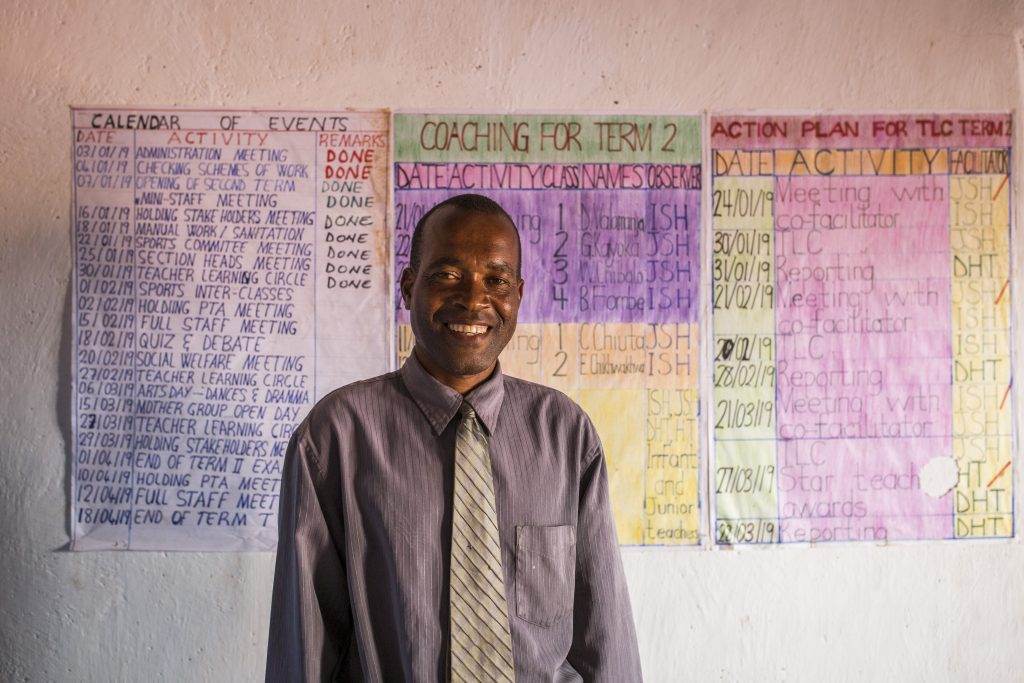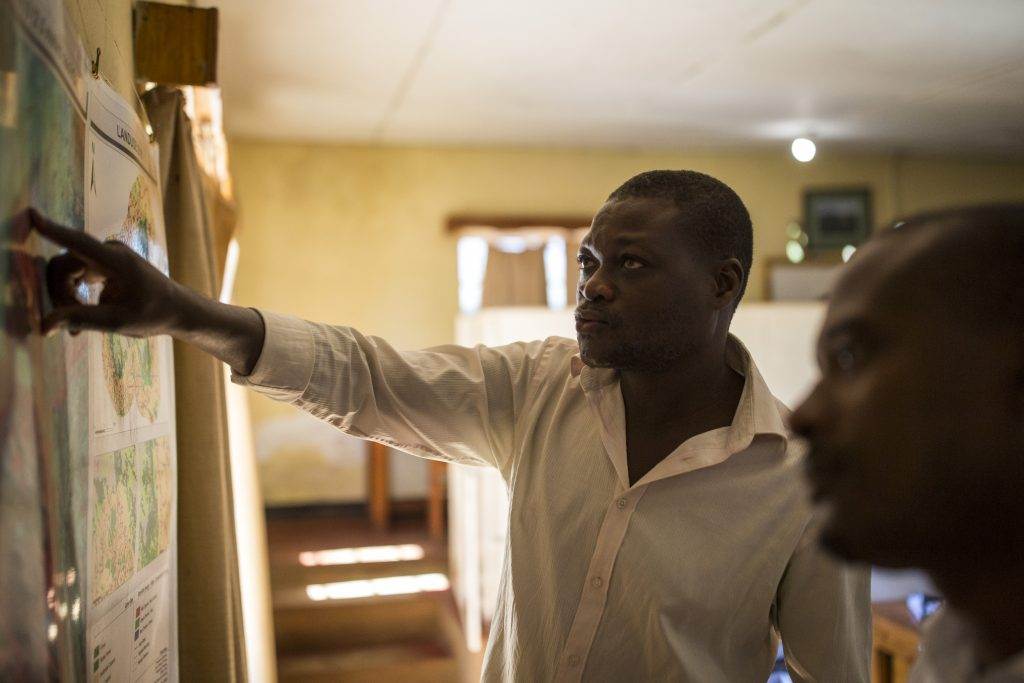The power of running water is electrifying whole villages in rural Malawi. For Headteacher Fasim Phiri, it’s led to better attendance, higher grades and brighter futures for his school’s children. It’s all thanks to a project that started back in 2014 with some unconventional thinking and an original approach to project sustainability. In this case, thinking outside the box has resulted in clean, renewable energy for nearly 30,000 people.
Fasim Phiri is Headteacher at Likole School in the south of Malawi. The school has over 1000 pupils, who walk there from up to 2km away. Earlier this year, Likole School was connected to electricity for the first time. Before that, teaching and learning during the country’s rainy season was a struggle.
 “Before we had electricity, the pupils couldn’t learn properly,” says Fasim. “During the rainy season it’s very dark and the classrooms were too dark to work in. The pupils couldn’t see the blackboard. There wasn’t even enough light to
“Before we had electricity, the pupils couldn’t learn properly,” says Fasim. “During the rainy season it’s very dark and the classrooms were too dark to work in. The pupils couldn’t see the blackboard. There wasn’t even enough light to
read and write. Without being able to read and write, it’s very difficult to teach anything. The pupils had to go home early. Sometimes they didn’t come to the school at all for months.”
Likole is one of six schools in the region that now has electricity. It’s the result of a Practical Action project that’s brought clean, renewable energy to tens of thousands of people. It’s made a huge difference to Fasim and his pupils.
“Now that we have electricity, even if there are thick clouds and it’s dark, we have light in the classrooms because of the electric light”, Fasim says. “The pupils are able to learn all year round whatever the weather. The pupils are very excited about it. Attendance has improved a lot.”
Beyond the school gates
It’s not just schools that have benefitted. Our work with local partners has brought clean, renewable energy to nearly 30,000 people. As well as connecting the homes of families and small businesses, three business centres and a health clinic now also have electricity.
The electricity is generated by three power stations that harness the power of the river Bondo. The first of these power stations was built in 2014 as part of a Practical Action project to bring electricity to this remote region.
An unconventional approach
This was the first micro-hydro power station of its kind in Malawi. Our experts brought all the skills and knowledge they’d amassed working on similar projects to prove to the Malawi authorities that river power was capable of providing clean, affordable electricity to households and businesses in the area. Five years later, the results speak for themselves.
To make the project sustainable in the long term, we helped create a not-for-profit organisation called MEGA (Mulanje Electricity Generation Authority) to maintain and administrate it locally. MEGA is essentially like any other electricity company – except all the money it makes from selling the electricity goes right back into expanding the grid so that more people can benefit.
 Samuel Mambo, MEGA’s Technical Projects Officer, explains this approach, the originality of which caused quite a stir:
Samuel Mambo, MEGA’s Technical Projects Officer, explains this approach, the originality of which caused quite a stir:
“It was a different approach that raised eyebrows at the time and still does today. The idea was to create a power company which would employ professional staff with the purpose of operating and maintaining the infrastructure. MEGA isn’t a development agency or an NGO – we’re the exit scenario of the project.”
MEGA employs five full-time employees and 30 part-time or shift staff who are linesmen, security guards and power station operators. Additionally, there are up to 100 temporary staff employed as builders, pipe layers and road builders. All the employees are local, making MEGA a valuable source of employment.
Following the success of the MEGA project, we’re planning another micro-hydro project in the north of Malawi. We’re taking everything we learned from our time in Mulanje and applying it to the remote and mountainous Usingini region. We’ll harness the power of the Zulunkhuni river to bring clean, renewable energy to nearby villages. And by setting up the Usingini Power Company, just like we did with MEGA, we’ll make sure that the electricity keeps flowing for generations to come.